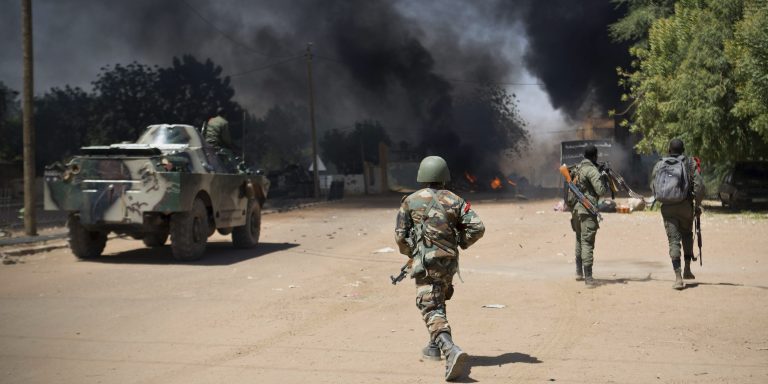INTELBRIEF
August 26, 2019
IntelBrief: Sectarian Violence and Jihadist Terrorism in West Africa

- Increasing sectarian violence has destabilized once peaceful Burkina Faso, transforming the country into a hotbed of militant jihadist activity.
- Fighters linked to AQIM and the so-called Islamic State in the Greater Sahara have been fighting for supremacy throughout West Africa.
- Jihadists have long viewed West Africa as fertile ground for expansion, given the region’s weak security forces and high levels of corruption.
- More than 70,000 people have been forced to flee their homes since the beginning of 2019, while terrorist attacks perpetrated by jihadists have increased fourfold over the past two years.
Increasing sectarian violence has destabilized once peaceful Burkina Faso, transforming the country into a hotbed of militant jihadist activity. Ongoing conflict throughout the region, including in neighboring Mali, has led to spillover violence that is now affecting Burkina Faso. Jihadists from Mali, equipped with sophisticated weaponry looted from Libyan arms depots, are seeking to establish roots in Burkina Faso, a country previously immune from the kind of terrorist activity that has plagued other countries in the region. France maintains an active presence in the region, but with the success of French military operations comes unintended consequences. As militants have been forced out of safe haven in Mali and Niger, they have fled to Burkina Faso, Benin, and elsewhere. Ghana, Cote D’Ivoire, and Togo remain vulnerable to violence emanating from the proliferation of jihadist groups in West Africa.
More than 70,000 people have been forced to flee their homes since the beginning of 2019. Terrorist attacks perpetrated by jihadists have increased fourfold over the past two years. Attacks have targeted diverse populations including farmers and herders. Both Christians and Muslims have died from terrorist violence. Between February and May of this year, jihadists attacked both Protestant and Catholic churches, killing priests and parishioners and burning churches to the ground. Attacks continued throughout the summer in both the east and north of Burkina Faso, where militants have relied on a combination of coercion and persuasion to garner support from members of the Fulani ethnic group.
Fighters linked to al-Qaeda in the Islamic Maghreb and the so-called Islamic State in the Greater Sahara have been fighting for supremacy in various countries throughout West Africa. Their attacks are intended to assert dominance and secure leverage that will help each organization more effectively recruit and raise funds. In addition to battling with Burkinabe troops, militants have attacked a range of soft targets, including schools and hotels. More recently the militants’ strategy has assumed sectarian overtones in an attempt to divide the country and rally support for the jihadists’ objectives. Jihadists have long viewed West Africa as fertile ground for expansion, given the region’s notoriously weak security forces, high levels of corruption, and its delicate demography—several nations in the region sit along the fault line of Christian and Muslim populations.
In addition to France, the United States also maintains a sizable military footprint throughout the Sahel and other parts of Africa. U.S. security cooperation programs and efforts to build partner capacity have helped bolster African militaries and improve counterterrorism capabilities. However, as Washington shifts its emphasis from global counterterrorism operations to great power competition with Russia and China, the United States is drawing down its forces throughout Africa. A reduced American presence could exacerbate security vacuums in failed and weak states in West Africa and turn the region into a safe haven for jihadists, including foreign terrorist fighters from the Islamic State fleeing Iraq and Syria following the collapse of the physical caliphate.
.
For tailored research and analysis, please contact: info@thesoufancenter.org